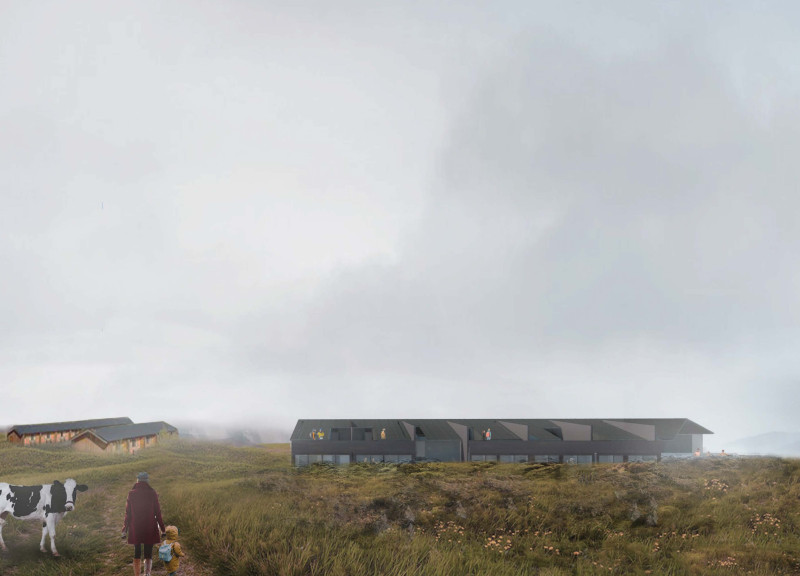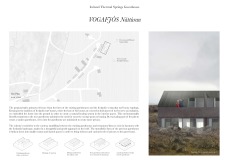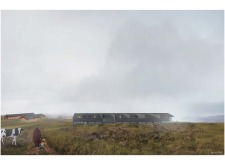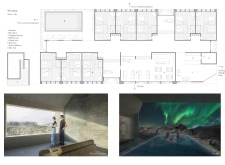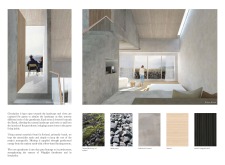5 key facts about this project
The Iceland Thermal Springs Guesthouse is located near Lake Myvatn and the Hverfjall Volcano, fitting into the beautiful Icelandic landscape. Intended to provide a sustainable lodging experience, the design draws inspiration from traditional turf houses. It features a concept of embedding the structure into the earth, which allows for a natural heating system and lowers energy use while enhancing guest privacy.
Architectural Integration
The design features a sunken form that works with the land, reducing visual impact and creating a sense of retreat. By digging into the site, the guesthouse is partially below ground, offering close views of the surrounding area while staying protected from harsh weather. This method respects the environment and reflects the importance of historic Icelandic building techniques.
Spatial Organization
The layout breaks away from typical large buildings by including smaller rooms and shared spaces. This arrangement allows for varying degrees of privacy while encouraging social activities among guests. Key areas consist of the entrance, reception, dining room, living areas, and bedrooms with private balconies. Each space is designed to create smooth transitions from indoors to outdoors.
Material Selection
The materials used include basalt stone, fair-faced concrete, timber, and dark corrugated steel. These choices support a simple, rustic look that connects the building to its environment. Basalt stone is particularly important as it ties the structure to the unique geological features of Iceland and helps with energy efficiency through its thermal mass. This careful selection of materials creates a durable appearance that reflects the region's character.
Guestrooms are positioned lower in the structure, allowing nature to flow into the interior. Natural light enters from carefully placed openings, brightening the space while keeping the connection to the landscape alive. The design promotes a genuine experience, combining comfort and the beauty of the Icelandic setting.


